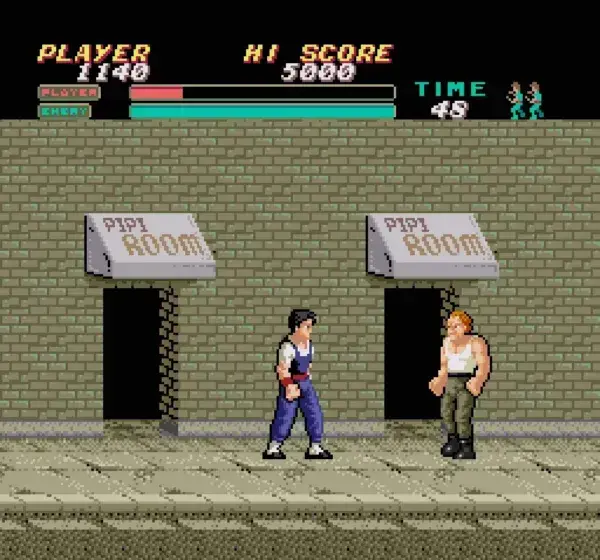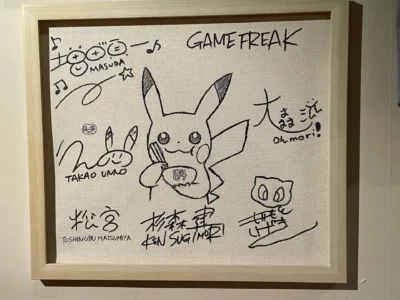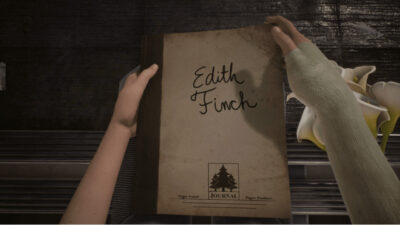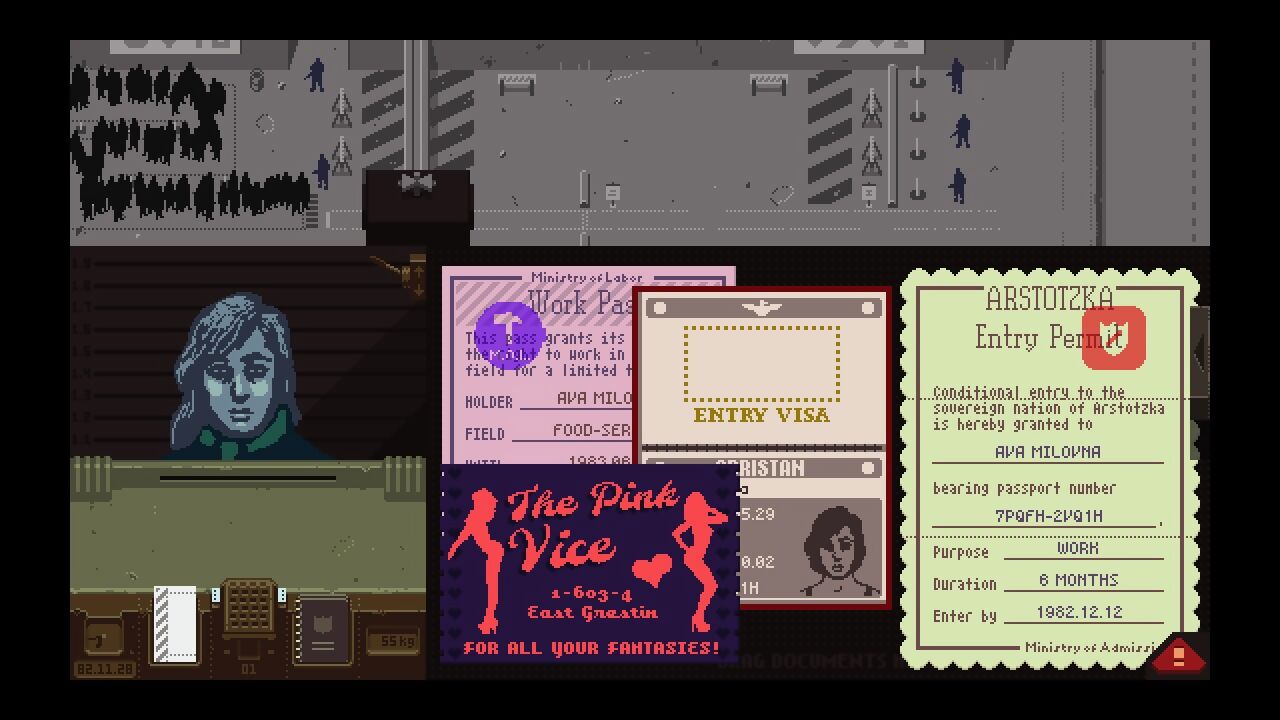
As Lucas Pope’s indie classic Papers, Please celebrates its 10th anniversary, Alan Wen reflects how this lo-fi dystopia’s mundanity reintroduced him to video games.
Gaming has had its fair share of memorable years, and 2013 was most certainly one of them. In the blockbuster headlines, it was the year that gave us The Last of Us and Grand Theft Auto 5, whose influence and popularity can still be keenly felt 10 years on. More importantly, it was towards the end of the year that I got back into video games after a hiatus that had lasted for almost a decade. The game that did it, however, wasn’t any of the obvious big hitters, but rather the most unlikely one of all: Papers, Please.
Developed by Lucas Pope, it’s a seemingly mundane game in a grim fictional Eastern Bloc-inspired state where you play as an immigration officer at a migration checkpoint. Each day is spent checking the passports of migrants and returning citizens, and then stamping to either approve, reject, or even detaining those with fake documents that might be suspected criminals or terrorists.
On paper (no pun intended), it doesn’t strike as the most exciting game, especially from a former Naughty Dog developer who worked on the Uncharted series. Papers, Please isn’t even the first game to dabble in mundane mechanics, such as 2010’s Cart Life, and was also in good company in what was equally a memorable year for indies, including Fez, Gone Home, and The Stanley Parable. Of course, at the time, I was oblivious to all of these.
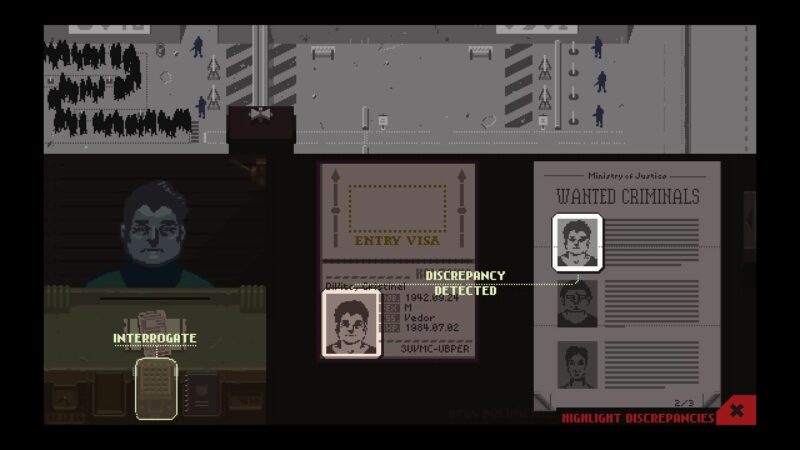
Credit: Lucas Pope.
The last games I had played were Halo 2 and GTA: San Andreas on Xbox and PS2 respectively back in 2004 when I was a student already juggling too many things in life, so it naturally felt like I had grown out of games. There had been no reason for me to care about it, I didn’t seek out any gaming news, nor was anyone in my social circles interested in gaming. Sure, I caught billboard posters of GTA 5 and ads of The Last of Us in the cinema but none of it registered. Even if I was intrigued, I wasn’t planning to shell out on an expensive console to find out – shockingly, I didn’t even own a TV or smartphone at the time (relax, I wasn’t off-grid, I was just watching stuff on my laptop, back when they came with DVD drives).
So how did gaming, and Papers, Please, of all games, worm its way back into my consciousness when I wasn’t actively looking for it? Of course, good writers and indeed good games have their way of making their subject appeal beyond a specialist target audience, so although my recollection is foggy, I’m sure that I first read about the game in an article that was also probably meant to be about something else.
But it was Charlie Brooker who really sowed the seeds in relighting my interest with his one-off special How Videogames Changed the World, broadcast in November 2013. I watched it as a Brooker fan but also as an innocent nostalgia trip, though in the end it only further piqued my interest in gaming, not least because it ended with Twitter as an example of how much of our everyday lives have already been gamified. While it was not one of the 25 titles the show discusses in depth, Papers, Please nonetheless makes an appearance, cited as an example of how games were capable of exploring complex real-world issues, something that appealed to my faux-intellectual sensibilities in wanting to engage in something that wasn’t just the ultra-violence of Mortal Kombat or Call of Duty.
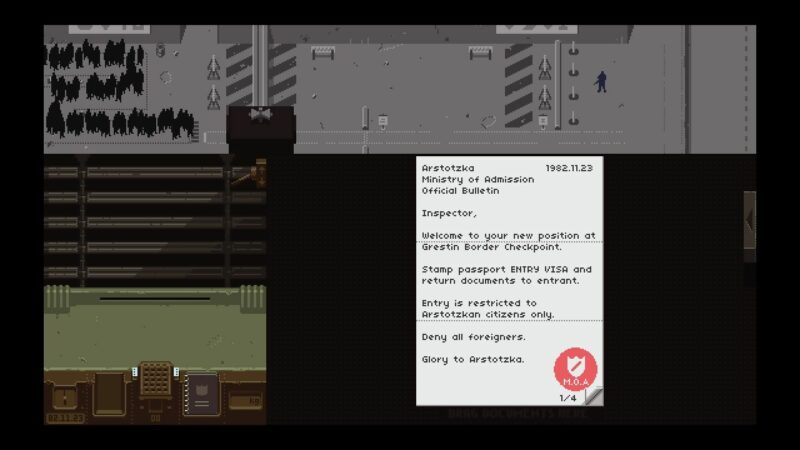
Credit: Lucas Pope.
Of all the games shown, it was also perhaps the one I could most easily access. I didn’t need to buy a console or TV; as an indie release, it was cheaper than a cinema or club or gig ticket, while its lo-fi pixel art visuals meant it could run on any computer, including a non-gaming MacBook, which was what I had at the time. Perhaps more importantly, I recall the version I bought would just run as an application so I didn’t even need to install or register on Steam to run it, which was again one less barrier.
There was also one other connection why Papers, Please had an unusual appeal for me, in that it wasn’t all too different from my job at the time. Which isn’t to say I was working at a dystopian passport control, though the work was pretty bureaucratic and my office was actually next to the building that inspired the Ministry of Truth in George Orwell’s Nineteen Eighty-Four. I was actually working for the NHS, dealing with the admin of recruiting postgrad junior doctors into various roles in London.
For some of these roles, such as Core Medical Training, we’d get hundreds of candidates being interviewed over the course of a week. There’s many bits of the job to ensure this all runs smoothly, but the first part involves checking the candidates’ documents, including their identification, qualifications, as well as their right to work in the UK, which means checking their passport and relevant visas.
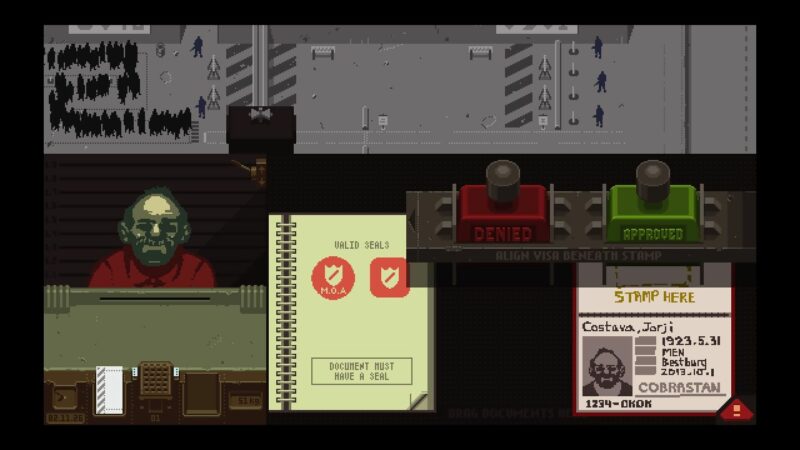
Credit: Lucas Pope.
Sometimes these would be quite straightforward, as many are British junior doctors straight out of medical school and foundation training, but then there are those who haven’t read the invitation email telling them everything they’re supposed to bring, or you’ve got older candidates who have different kind of paperwork compared to what you’re expecting, and of course plenty of overseas candidates with various kinds of visas.
We also had a lady at the office called Jane who would routinely update us on different changes in visa tiers that would affect different doctors or make certain visas out of date. In other words, there were a lot of bureaucratic processes to follow and adapt to, but as someone a little obsessed with being organised, I’d strive to get through these document checks as efficiently as possible to avoid interviews getting delayed or having to go through the headache of chasing up outstanding documents afterwards.
I could then see the parallels with an actual gamified version of this where paying attention to details and possible discrepancies while being efficient is crucial, all while the rules and procedures get ever more complicated and questionably intrusive. Obviously, the stakes are also higher here, as your immigration officer is only being paid for each person that’s let through, while your meagre earnings are quickly spent just to keep a roof over your family’s head and to ensure they’re fed, which only makes you more reticent to bribes or any other morally questionable choice to get a bonus.
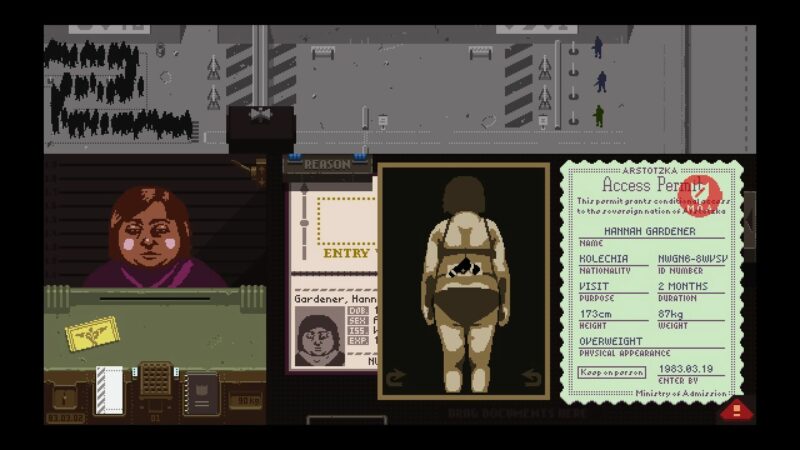
Credit: Lucas Pope.
What it manages to cleverly do is inject new scenarios that disrupt the monotony of the work, first with a shocking terrorist bomb attack that not only cuts the working day short but reminds you how tensions are constantly brimming in the background. The gameplay however never wavers from having you constantly back at your desk doing the same thing, even as it adds new mechanics, such as having to check more convoluted entry permits or going as far as full body scan of entrants. Within the confines of your oppressive desk, you’re treated to moral choices, such as whether to let a couple come in together, even though the wife doesn’t have the correct documentation, while it also has fun with the persistent recurring appearance of Jorji, an obviously dodgy but charming guy who almost always fails to turn up with any legit paperwork.
Compared to my previous experience of games where I was mainly shooting things, it was fascinating to me how gaming could actually be something else entirely and didn’t need to lean on blockbuster visuals or Hollywood tropes to immerse me in compelling narratives, which I would continue to explore immediately after with Gone Home. But Papers, Please’s mechanics were almost arcadey in a way that after a failed run that led to my child dying from illness and starvation, I was already eager to start another run. In fact, I had bought it just before I travelled to Manchester for a raving weekend and ended up taking the MacBook with me to play during my downtime.
I didn’t know it then, but the gaming bug had bitten me good, so by the time 2014 came around I treated myself to a second-hand PS3 (along with the cheapest ‘HD-ready’ TV I could get my hands on) and then a Wii to catch up on the many other games I’d missed, and before the end of the year I suddenly owned every modern console.
It’s testament to Papers, Please's lasting brilliance that a pixelly game simulating the most tedious of jobs would provide that spark.
Read more: How detective games are evolving


